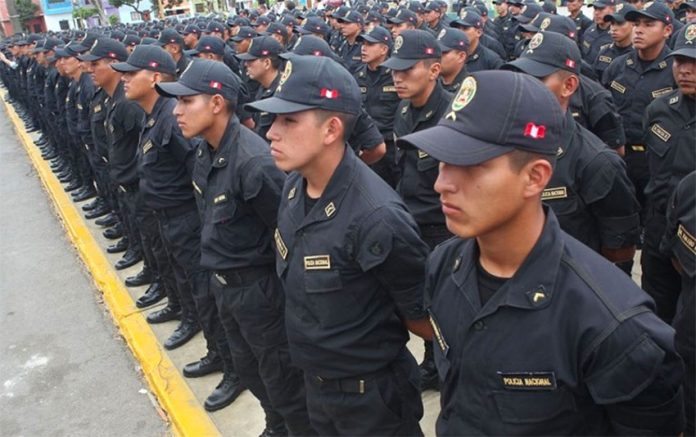I have a friend whose daughter is in an abusive relationship. The daughter, a mother of three young children, is cloistered in her cramped home with little permission to go out without her partner — almost every aspect of her life is controlled, partially by him, partially by her lack of a job and time to work.
Her partner is currently in training to become a police officer.
Another friend of mine used to work as a psychological evaluator for potential police recruits. He was constantly surprised to hear confessions of (and sometimes bragging about) rape and abuse, only to see them hired as police officers anyway against his recommendations.
To be fair, abusers can be in any profession, and I don’t have the data to claim that they’re predominantly concentrated in certain jobs. I want to give them the benefit of the doubt; I want to believe that all those who become police officers are good people, interested in justice and fairness, who take their duty to protect citizens seriously.
With homicides at an all time high in Mexico, we need them more than ever. And as imperfect as our institutions are, they’re still a preferable buffer between citizens simply trying to live their lives and total lawlessness — and yet.
In a recent Mexico News Daily article about police pay and certification, it was revealed that large swaths of police forces around the country are poorly paid (no surprise there) and that “only 12 of Mexico’s 32 federal entities had police forces in which more than half of the officers were certified.
Certification is conferred on officers who have passed confidence tests, completed initial training and are performing to their expected level.”
I’m sorry, what?
Who, exactly, is pinning badges on people who are not prepared for doing the job?
Police are tricky. We need them, especially now, but how can we make sure they’re not themselves infiltrated with “bad guys,” especially when we’re desperate to beef up our thinned-out forces?
When probable impunity is part of the fabric of society itself, how can we ensure that they’re on the side of law-abiding citizens, and willing to stay there despite unprecedented danger and lukewarm pay?
In the absence of well-trained, well-paid police forces throughout the country, several groups, including this one in Veracruz, have taken it upon themselves to form their own security forces.
Well, it’s better than nothing. But their presence shows a shocking loss of faith and confidence in government to protect its citizens at a profound level. After all, who decides on the standards, rules and regulations for these defense forces? Is there any uniform set of laws or standards (or — yikes — morals?) that they’ll decide to enforce?
Is there anything that could convince these ordinary citizens to become legitimate, badge-carrying police officers?
With every state police force in the country severely lacking in numbers and many municipal forces dwindling as well, it’s important for us to ask what we can do to recruit good, qualified officers. What can we offer people in order to become professionals who, in some areas, might as well have targets pinned to their uniforms?
With such a tall order, it’s hard to be picky, yet we must be. And one way to do that is through pay. Pay is not everything, of course. But pay directly correlates to how important we feel people’s jobs are to society. So what does it say when we’re asking people to protect citizens with their lives, if necessary, for 10,000 pesos a month?
Most police officers make between 10,000 and 20,000 pesos a month, with salaries for municipal police set by the municipality itself. Currently Guanajuato state police are set to be the highest-paid in the country, with a monthly take-home pay of just over 20,000 pesos.
They’re not terrible salaries for many places in Mexico, but it’s certainly not a high enough amount for which most people I know would accept risking their lives.
Asking people to protect citizens in a country uncomfortably close to being completely lawless in many areas is one of the biggest requests that can be made.
We’re essentially asking them to put their communities above themselves, and perhaps even above their families. What is that worth? And if, say, we doubled, tripled or quadrupled the amount, could we be more selective in terms of whom we hired for these jobs?
Justice and fairness, like everything else in life, is multi-dimensional and sticky. Let’s at least start with fair pay.
Sarah DeVries writes from her home in Xalapa, Veracruz.
